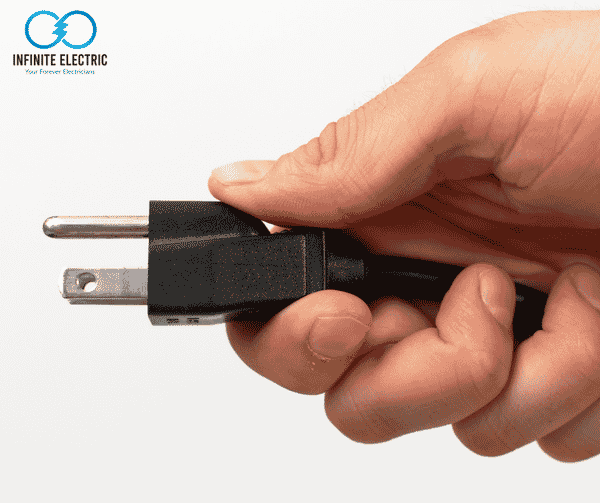
How to become an electrician in 2022
According to the Bureau of Labor Statistics, there are more than 700,000 electricians currently working in the United States. That number is expected to increase by eight percent within the next ten years. That is significantly faster than the average for all jobs in America.
Residents and businesses alike continue to depend more and more on technology and electricity. And this means electricians will be needed to install and repair necessary components.
By knowing how to become an electrician, you can set yourself up for a successful and rewarding career for many years to come.
Are you interested in learning more? If you are, then keep on reading. We’ll take you through everything you need to know about becoming a professional electrician.
What Does an Electrician Do?
Electricians are skilled trade workers. They are trained to deal with a variety of issues having to do with electrical power. There are three main responsibilities of an electrician.
Electricians have to install, maintain, and fix electrical equipment of all kinds. Depending on the level of experience of the electrician, as well as their licensing, they can be placed in one of the following three categories:
First, there is the journeyman electrician. A journeyman electrician is the most basic level for electricians.
This kind of electrician has finished an apprenticeship. They have also received a license to be an electrician.
A journeyman has the ability to work on their own but they won’t be able to provide training to apprentices, pull permits for electrical work, or lead a job site.
A master is the next level for electricians. A journeyman electrician can apply to become a master after they acquire around two years of experience. The specific requirements to become a master electrician will vary from state to state.
However, licensing usually requires the applicant to pass a test. Master electricians have the ability to direct electrical teams, offer training to apprentices, and lead job sites.
Finally, there are independent electrical contractors. These electricians are basically small business owners. These people hire teams of electricians in order to complete jobs.
Because of this, an independent electrical contractor has to have a certain level of insurance. They are also required to either have a master electrician on their staff or be a master electrician themselves.
Specialized Electricians
Within the electrician community, electricians have the choice of either generalizing their role or becoming a specialist in one of the following areas.
First, they can choose to become a residential electrician. This kind of electrician focuses on installing, maintaining, and fixing the electrical systems and wiring in small apartment buildings and houses.
There is also the role of commercial electrician. This kind of position involves the electrician having to handle issues in commercial buildings.
Commercial buildings use types of power that are a bit different from residential buildings. Because of this, commercial electricians need to complete a certain amount of hours in training in that setting during their apprenticeship.
Lastly, there are industrial electricians. Industrial electricians perform electrical work that takes place in large facilities that utilize big machinery and equipment. Some examples of this kind of setting include chemical plants, power plants, and manufacturing facilities.
These industrial buildings usually have more electrical needs than their commercial and residential counterparts. Industrial electricians have to train under a licensed industrial electrician as a journeyman or as an apprentice.
Skills
Electricians need to have a distinct set of skills. They need these skills in order to safely and effectively do their work. Let’s look at some of the most important skills below.
Critical thinking is a must. Electricians need to diagnose and test equipment with specialized tools. Those tools may include ammeters, voltmeters, and ohmmeters.
Diagnosing electrical problems and evaluating test results requires strong critical thinking. This skill will also help keep you safe when you’re doing your work. Burns, falls, and electrical shocks are all common injuries for electricians.
You’ll also need to possess physical strength and stamina. As an electrician, you can expect to work with electrical cables, run wires, install circuit breakers, and replace fuse boxes. These are physically demanding tasks.
You need to have stamina and strength in order to work with electrical appliances and equipment.
Electricians also need to possess good communication skills. You have to be able to effectively communicate with contractors, assistants, and customers. You need to be able to clearly explain problems, provide instructions, and collaborate with other workers in a professional setting.
Manual dexterity is also crucial. As an electrician, you can expect to work with:
- motors
- generators
- electrical components
- wires
- switches
- fuses
- electronic controllers
All of that is going to require plenty of manual dexterity. You’ll also likely be using specialized tools, such as screwdrivers, pliers, drills, and wire strippers.
Lastly, you’ll need good hand-eye coordination. This is necessary to safely complete installations and repairs.
How to Become an Electrician
There are several steps that you will have to go through in order to become a professional and licensed electrician. Let’s look at each of those steps in depth below.
1. Earn a High School Diploma or the Equivalent
Before you start your career as a licensed electrician, you are first going to have to earn either a high school diploma or the equivalent of one. While a majority of the job relies on specific skills that are related to the electrician industry, there are still all kinds of academic concepts that electricians utilize on a daily basis.
There are several school subjects that provide valuable skills within this kind of career.
First off, you need to know trigonometry and algebra. Electricians need to use their math skills so that they can measure the angle of a circuit, calculate the force of electrical currents, and determine wiring lengths.
You will also have to know physics. Electricians need to know basic scientific concepts so that they effectively and safely complete their jobs.
Because you’ll likely be reading a lot of technical documents, it’s also important that you’re skilled in English.
Lastly, you should take a shop class and also mechanical drawing classes. These classes can be useful in teaching budding electricians to design electrical systems in buildings and other structures.
2. Think About Attending a Vocational or Trade School
While it isn’t required to attend a vocational or trade school in order to become an electrician, these kinds of programs can offer you valuable training. And they can be extremely useful in helping students obtain certifications as well as job placement.
Whether you earn a career diploma through a trade school or go to a four-year university where you study electrical technology, the experience will most likely give you comprehensive classroom and lab-based training.
Students are given introductions to basic electrical principles and foundational tools that can give them the edge they need when they’re applying to apprenticeships.
Also, the majority of licensing regions and states let students substitute some of the time spent during their formal education for the time of experience that’s needed to obtain a journeyman license.
Usually, one year of formal education can account for 1,000 hours of work experience. Students can only substitute up to two years of training, or 2,000 hours.
Students might also be able to complete a journeyman program that is designed to align with the local licensing requirements, depending on the trade school. Many of these programs will provide 4,000 hours of on-the-job experience. That’s roughly equivalent to half of what’s required to become a licensed journeyman.
3. Apply for an Apprenticeship
You have to finish an apprenticeship before you can become a licensed electrician. And that is regardless of whether you decide to use a trade school to do your training.
There are several ways in which you can find an apprenticeship.
First off, you can find an apprenticeship through a trade school. Trade schools will usually offer job placement and apprenticeship opportunities.
You can also find an apprenticeship through a union. It’s worth knowing about the Joint Apprenticeship & Training Committees, or JATC. This union has locations in pretty much every major city across the country.
They can place you with a local union employer. They also tend to host lab-based and classroom training at their offices.
With that said, it’s important to note that this is a union you’re working with. So you’ll also be required to join the International Brotherhood of Electrical Workers, or IBEW.
You can also find an apprenticeship through a non-union. Choosing to join a union or not is a decision that every apprentice has to make for themselves. There are two main organizations that provide apprenticeship placement with non-union electrical contractors.
First, there’s the Associated Builders and Contractors, Inc, or ABC. There is also the Independent Electrical Contractors, or IEC. Both of these groups have locations across the United States.
There are some things you might be asked when applying to become an apprentice. You might be asked to complete an aptitude test. This test is to see how good your math and reading comprehension skills are.
You also might be asked to complete a job interview. They may even ask you to meet certain physical requirements and take a drug test.
4. Register as an Electrician Apprentice
Some states will require that you register as an electrical apprentice before you’re allowed to go onto a job site. You should research the requirements of your state before you start working.
5. Finish Your Apprenticeship
The core of your training to become an electrician will be your apprenticeship. It will combine on-the-job training with classroom lessons. It will also provide you with supervision and mentorship from a master electrician.
Many states require that you complete at least four years of apprenticeship before you take the exam. An apprenticeship will cover training on a variety of topics.
You’ll learn how to decipher construction blueprints and technical diagrams for electrical plans. You’ll also learn how to install, fix, and maintain electrical wiring. The same will also be true for electricity-distribution equipment.
Apprentices will also be able to ensure that all work is done in compliance with the necessary regulations. You’ll also be able to use special tools to inspect and test electrical systems for problems.
Electrician licensure requirements fall within the following range:
- 8,000 to 10,000 hours (four to five years) spent getting on-the-job training
- 575 to 1,000 hours spent in the classroom
And those requirements will be true regardless of where you work or study.
6. Get Certified or Licensed
The requirements for certification and licensing vary by state and even by city. So you need to make sure that you research any qualifications necessary for working in your locality.
If your area requires that you obtain a license, then you might have to also pass an electrical test. This test will measure your comprehension of the National Electric Code. It will also test your knowledge of building codes, electrical concepts, and safety protocols.
You’ll also have to provide proof that you’ve successfully completed your apprenticeship.
The Importance of Knowing How to Become an Electrician
Hopefully, after reading the above article, you now have a much better idea of how to become an electrician. As we can see, becoming an electrician requires a lot of commitment and training, but the rewards can be extremely satisfying.
Are you looking for a job as an electrician? Or do you need electrician services from a Spokane Electrician? If so contact Infinite Electric today!
- Do Garage Door Openers Require a Dedicated Circuit? - 21/08/2023
- Dedicated Circuits - 01/07/2022
- How to Become an Electrician - 13/06/2022

